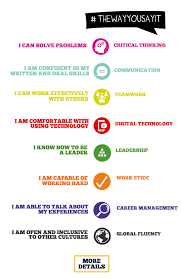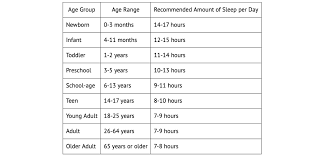The Importance of Developing Competencies in the Workplace
Competencies are the combination of knowledge, skills, abilities, and behaviors that employees need to perform their roles effectively. In today’s dynamic and competitive business environment, developing competencies is crucial for both individual and organizational success.
Benefits of Developing Competencies:
Improved Performance: Employees who possess the necessary competencies are more likely to perform their tasks efficiently and achieve desired outcomes. This leads to increased productivity and overall performance within the organization.
Enhanced Employee Engagement: Investing in competency development shows employees that their growth and development are valued by the organization. This can lead to higher levels of engagement, motivation, and job satisfaction.
Adaptability: Developing a diverse set of competencies enables employees to adapt to changing roles, responsibilities, and challenges in the workplace. This flexibility is essential in today’s rapidly evolving business landscape.
Career Advancement: Employees who continuously develop their competencies are better positioned for career advancement opportunities within the organization. Building a strong skill set can open doors to new roles and responsibilities.
Strategies for Developing Competencies:
Training and Development Programs: Organizations can offer training programs tailored to enhance specific competencies required for various roles. These programs can include workshops, seminars, online courses, and on-the-job training.
Mentoring and Coaching: Pairing employees with experienced mentors or coaches can provide valuable guidance and support in developing key competencies. This one-on-one interaction fosters learning and skill enhancement.
Feedback and Performance Reviews: Regular feedback sessions and performance reviews help employees identify areas for improvement in their competencies. Constructive feedback enables individuals to focus on developing skills that are essential for their professional growth.
In Conclusion
In conclusion, developing competencies is essential for fostering a skilled workforce capable of meeting the challenges of today’s workplace environment. By investing in competency development initiatives, organizations can enhance performance, engage employees, promote adaptability, and create pathways for career advancement.
9 Essential Tips for Mastering and Showcasing Your Competencies
- Identify your key competencies and strengths.
- Continuously develop and improve your competencies.
- Seek feedback to understand where you can enhance your competencies.
- Set goals to work on specific competencies.
- Be adaptable and willing to learn new competencies.
- Communicate your competencies effectively in job interviews or performance evaluations.
- Collaborate with others to leverage different competencies within a team.
- Stay updated on industry trends to ensure your competencies remain relevant.
- Take initiative in seeking opportunities to apply and expand your competencies.
Identify your key competencies and strengths.
Identifying your key competencies and strengths is a crucial step in personal and professional development. By recognizing the skills, knowledge, and abilities that set you apart, you can leverage them to excel in your current role and advance in your career. Understanding your strengths allows you to focus on areas where you can make the greatest impact, build confidence, and take on new challenges with a sense of purpose. Moreover, knowing your key competencies enables you to communicate effectively with employers, colleagues, and potential collaborators about the value you bring to the table. Take the time to reflect on your strengths and competencies to unlock your full potential and achieve success in various aspects of your life.
Continuously develop and improve your competencies.
Continuously developing and improving your competencies is key to staying relevant and competitive in today’s rapidly changing work environment. By actively seeking opportunities to enhance your knowledge, skills, and abilities, you not only expand your capabilities but also demonstrate a commitment to personal and professional growth. Embracing a mindset of lifelong learning allows you to adapt to new challenges, seize opportunities for advancement, and ultimately achieve success in your career. Remember, investing in yourself through ongoing competency development is an investment that pays dividends in the long run.
Seek feedback to understand where you can enhance your competencies.
Seeking feedback is a valuable strategy to gain insights into areas where you can enhance your competencies. By actively seeking feedback from colleagues, supervisors, and mentors, you can identify strengths to leverage and areas for improvement. Constructive feedback provides valuable guidance on how to develop the necessary skills and behaviors to excel in your role. Embracing feedback as a tool for growth allows you to continuously refine your competencies and strive for professional excellence.
Set goals to work on specific competencies.
Setting goals to work on specific competencies is a strategic approach to personal and professional development. By clearly defining the competencies you want to improve and setting measurable goals around them, you create a roadmap for success. These goals provide focus, motivation, and a sense of direction in your journey to enhance your skills and abilities. Regularly monitoring your progress towards these competency-based goals allows you to track your development, celebrate achievements, and make adjustments as needed to stay on course. Ultimately, setting goals related to specific competencies empowers you to take proactive steps towards continuous improvement and growth in your chosen areas of expertise.
Be adaptable and willing to learn new competencies.
To thrive in today’s ever-changing work environment, it is essential to be adaptable and open to acquiring new competencies. Being willing to learn and develop new skills not only enhances one’s professional growth but also ensures relevance and effectiveness in the face of evolving job requirements. Embracing adaptability and a continuous learning mindset empowers individuals to navigate challenges with resilience and agility, ultimately contributing to their success and fulfillment in their careers.
Communicate your competencies effectively in job interviews or performance evaluations.
It is essential to communicate your competencies effectively in job interviews or performance evaluations to showcase your skills and abilities to potential employers or supervisors. Clearly articulating how your competencies align with the requirements of the role demonstrates your readiness and capability to excel in the position. By highlighting specific examples of how you have utilized your competencies to achieve results, you can provide concrete evidence of your qualifications and value to the organization. Effective communication of your competencies not only enhances your credibility but also helps you stand out as a strong candidate or performer in a competitive environment.
Collaborate with others to leverage different competencies within a team.
Collaborating with others to leverage different competencies within a team is a valuable strategy for maximizing productivity and achieving collective goals. By working together and drawing upon each team member’s unique knowledge, skills, and abilities, teams can effectively tackle complex challenges and drive innovation. This collaborative approach not only enhances the overall performance of the team but also fosters a culture of learning and mutual support, where individuals can learn from each other and grow professionally. Embracing diversity in competencies within a team leads to well-rounded solutions and a stronger sense of unity among team members.
Stay updated on industry trends to ensure your competencies remain relevant.
Staying updated on industry trends is crucial to ensure that your competencies remain relevant in today’s ever-evolving workplace landscape. By staying informed about the latest developments, technologies, and best practices within your industry, you can proactively identify new skills and knowledge areas that are in demand. This continuous learning and adaptation to industry trends not only enhance your professional capabilities but also position you as a valuable asset within your organization. Embracing change and staying ahead of the curve will help you maintain a competitive edge and excel in your career.
Take initiative in seeking opportunities to apply and expand your competencies.
Taking initiative in seeking opportunities to apply and expand your competencies is a proactive approach that can lead to personal and professional growth. By actively looking for chances to utilize and enhance your skills, you demonstrate a willingness to learn, adapt, and take on new challenges. This initiative not only helps you develop a broader skill set but also showcases your drive and commitment to continuous improvement. Embracing opportunities to apply and expand your competencies can open doors to new experiences, responsibilities, and achievements, ultimately contributing to your success in the workplace.



